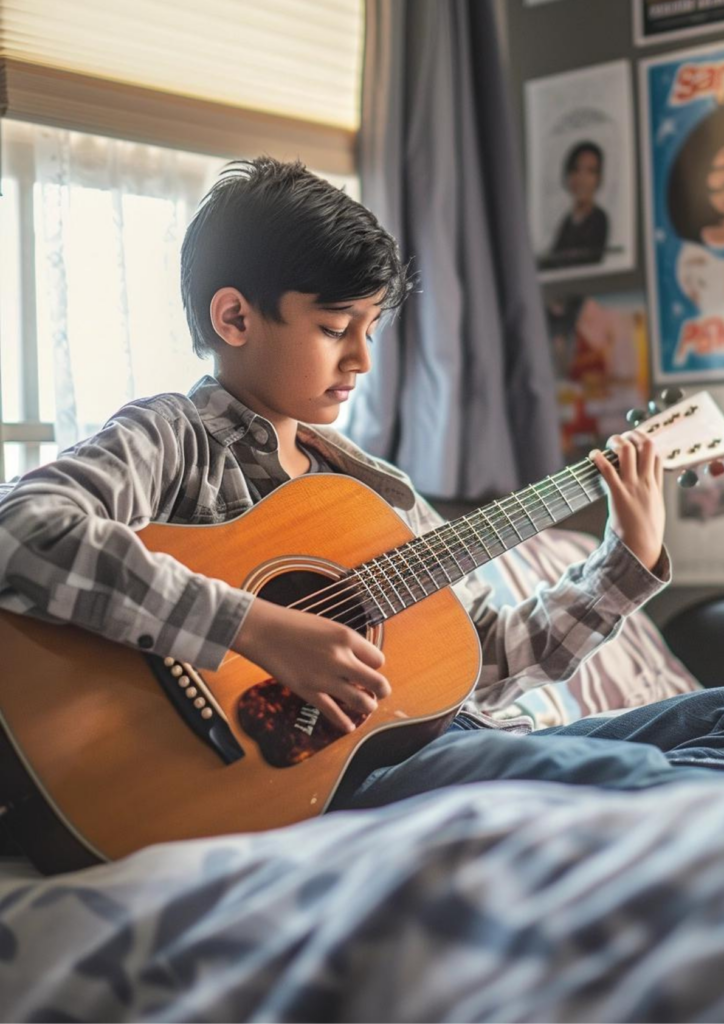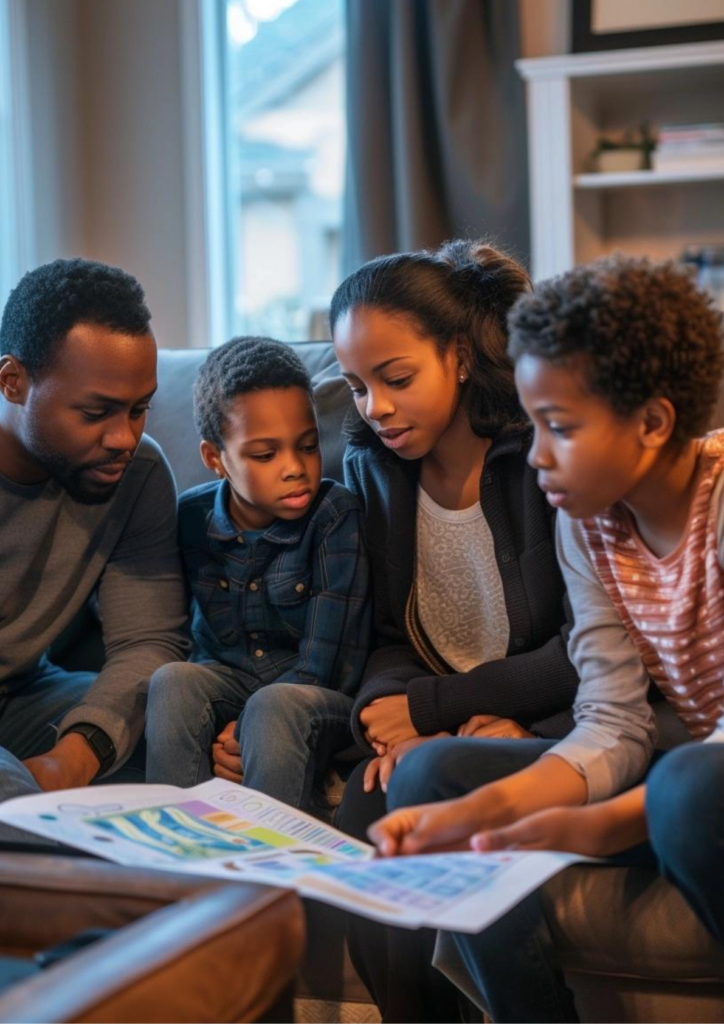Developing Flexible Thinking Skills in Kids: Why and How?

As a child psychologist and a parent, I believe very strongly in developing flexible thinking skills in our kids.
Flexible thinking, or the ability to adapt and shift perspectives in new situations, is a cognitive skill. But it is also a cornerstone for positive mental health, happiness, and success in social and academic realms.
In this article, I’ll share insights on fostering this essential skill in young children, drawing from both professional expertise and personal experiences.

Why Flexible Thinking Matters
Flexible thinking plays a pivotal role in a child’s development.
It’s about more than just finding a different way to solve a maths problem or choosing a different route to school. Flexible thinking skills are necessary for our children to thrive in a world that’s constantly evolving.
Children who are flexible thinkers can better handle unexpected changes, such as a new rule in a game or a sudden shift in plans, without frustration or anxiety.
Flexible Thinking and “Executive Functioning”
This adaptability is closely linked to executive functions, which include planning, problem-solving, and rational thinking.
Children with strong flexible thinking skills are often better at navigating social interactions, which can lead to improved relationships and reduced social problems.
Flexible thinking is a core aspect of executive functioning, which is essential for academic success and dealing with everyday challenges.

Flexible Thinking Skills, Mental Health and Wellbeing
Flexible thinking is a buffer against rigid thinking patterns, which can contribute to mental health issues. Flexible thinking can both help prevent mental health issues, and can also help young people recover from them more quickly.
Think of flexible thinking like being able to bend and not break when life throws something unexpected your way. Like playing a game when the rules suddenly change.
If you can quickly figure out a new way to play, you’re using flexible thinking.
In essence, flexible thinking skills are really important for feeling good in our minds because they helps us deal with changes and surprises without getting too upset or stressed.
It’s like having a mental toolbox that lets us come up with different ways to solve problems or deal with new situations.
When we can think flexibly, we don’t get stuck on one way of doing things.
This means when something doesn’t go as planned, we can shrug it off and try another way instead of feeling bad or giving up. It keeps us feeling more positive and less worried.
Practical Ways to Build Flexible Thinking Skills
Developing flexible thinking skills in kids doesn’t have to be a chore; it can be integrated into daily life through simple, fun activities. Here are some ideas:
- Offer Alternatives: When plans change, use it as an opportunity to brainstorm different solutions with your child. This shows them that there’s more than one way to achieve a goal. Afterwards, look back at the positives that this alternative brought. For example, “if we hadn’t had to travel by train rather than car, we would never have seen that beautiful scenery through the train window or tasted those delicious pastries from the restaurant.”
- Encourage Creative Play: Activities like building a den or free play with dough allow children to explore different outcomes and use their imagination to solve problems.
- Play Strategy Games: Games that require planning and strategy, such as chess or certain video games, can enhance cognitive flexibility by encouraging players to think several moves ahead.
- Learn a New Skill: Whether it’s a new sport, a musical instrument, or a craft, learning new skills pushes children out of their comfort zone and requires them to think in new ways.
- Read Together: Reading stories with diverse characters and settings can open a child’s mind to different perspectives and ways of life, enhancing empathy and flexible thought.
- Encourage Questions: Foster a home environment where questions are encouraged. Teach them to question things and look deeper. This will help your child understand that there are many ways to view the world.

Activities and Games to Build Flexible Thinking
Incorporating flexible thinking activities into your child’s routine can be both educational and enjoyable.
Here are some specific games and activities that promote flexible thinking:
- “What If?” Game: Pose hypothetical scenarios to your child and discuss possible outcomes. This encourages creative problem-solving and adaptability. You can pose silly and fun questions like, “what if cats ruled the world?”!
- Role-Playing: Acting out different roles or situations helps children see things from various viewpoints, enhancing empathy and flexibility.
- Puzzle-Solving: Jigsaw puzzles, Sudoku, and other brain teasers require children to approach problems from different angles, boosting their problem-solving skills.
- Craft Projects: Engaging in arts and crafts where there’s no “right” way to create can inspire your child to think creatively and be open to new ideas.

Flexible Thinking Skills: Example (12 Year Old Eddie)
Eddie, a 12-year-old with a love for science and routine, lived with his parents and little sister.
He thrived on predictability but struggled when faced with unexpected changes, such as a new teacher or a sudden shift in weekend plans.
Changes made him feel overwhelmed and stressed.
They also affected his social interactions, because Eddie became grumpy with his friends if they wanted to change their plans.
Eddie’s parents, recognizing the need for him to develop flexible thinking skills, introduced “What If?” games during family dinners. They wanted Eddie to learn how to consider different outcomes and solutions to problems in a fun, supportive environment.
His parents also encouraged Eddie to learn the guitar, a new hobby that was different from his usual interests. The process of learning music, with its trial and error, taught Eddie that mistakes were opportunities for learning, not failures.
On top of this, Eddie’s parents both made a concerted effort to demonstrate and model flexible thinking skills throughout family life.
For example, if they didn’t have the correct ingredients in the fridge for the meal they had planed, they talked through what creative dish they could make from the existing ingredients.
Over time, Eddie became more adaptable and open to new experiences, showing improvement in handling changes without distress.

Developing Flexible Thinking Skills in Our Children: The Bigger Picture
As parents, we play a major role in shaping our children’s thinking patterns.
We have to be “flexible thinking skills role models” and we have to integrate flexible thinking activities into our family’s routine.
By doing this we can help our children become more adaptable, creative, and resilient individuals. It takes consistent small steps and a lot of patience.
Flexible thinking is a life skill that will serve our children well in all aspects of their lives.
By actively working on this essential skill, we are helping our children succeed academically. We are also supporting their mental health, social skills, and overall happiness.
Let’s embrace the journey of nurturing flexible thinkers who are prepared to face the future with an open mind and a resilient spirit.
Related Articles
Black & White Thinking in Autistic Children: Practical Strategies for Parents
Growth Mindset Questions for Kids: Encourage and Motivate (Free PDF)
3 Easy Self-Esteem Games for Kids
Dr Lucy Russell is a UK clinical psychologist who works with children and families. Her work involves both therapeutic support and autism assessments. She is the Clinical Director of Everlief Child Psychology, and also worked in the National Health Service for many years.
In 2019 Lucy launched They Are The Future, a support website for parents of school-aged children. Through TATF Lucy is passionate about giving practical, manageable strategies to parents who may otherwise struggle to find the support they need.
Lucy is a mum to two teenage children. She lives in Buckinghamshire with her husband, children, rescue dog and three rescue cats. She enjoys caravanning and outdoor living, singing and musical theatre.
UK parents! Are you ready to boost your family’s wellbeing and kickstart your child’s journey towards brilliant mental health?
This FREE 20-minute course from Dr. Lucy Russell, with quick-start strategies will help you and your family begin your journey to flourishing mental health!
🔍 What’s Inside?
✅ Quick quiz to assess your starting point
🎥 Short and engaging video lessons
💡 Practical strategies to implement today
Yours for 3 days
In just 20 minutes, I will give you tools to enhance your family’s wellbeing.
Together, we can move towards a calm, happy family life and boost your child’s wellbeing. Get your free course now!

